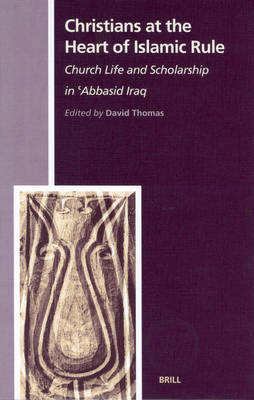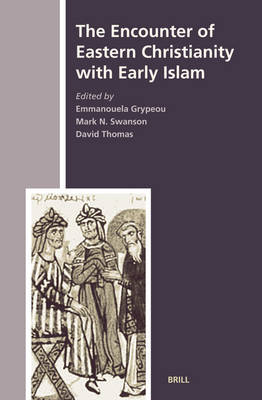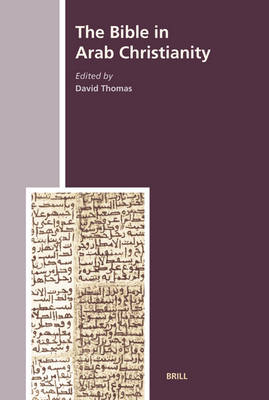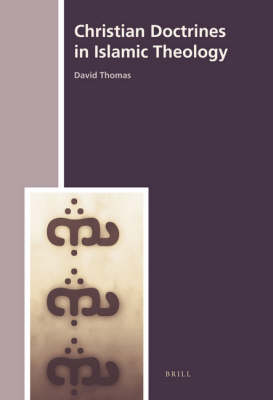History of Christian-Muslim Relations
4 primary works
Book 1
The chapters in this volume, which come from the Fourth Woodbrooke-Mingana Symposium, cover aspects of Christian life in and around Baghdad in the early centuries of 'Abbasid rule.
The authors explore both broad themes, such as the place of monasteries in Muslim cultural life, accusations of Islam as crypto-idolatry, and Muslim responses to Christian apologetic arguments, and also specific topics, such as a Nestorian's explanation of the Incarnation, a Jacobite's purpose in composing his guide to moral improvement, and the development of Christian legends about the caliph al-Ma'mun.
The volume illustrates the vigour of Iraqi Christian life in 'Abbasid times, and helps show that relations between Christians and Muslims, although strained at times, were often beneficial to followers of both faiths.
The authors explore both broad themes, such as the place of monasteries in Muslim cultural life, accusations of Islam as crypto-idolatry, and Muslim responses to Christian apologetic arguments, and also specific topics, such as a Nestorian's explanation of the Incarnation, a Jacobite's purpose in composing his guide to moral improvement, and the development of Christian legends about the caliph al-Ma'mun.
The volume illustrates the vigour of Iraqi Christian life in 'Abbasid times, and helps show that relations between Christians and Muslims, although strained at times, were often beneficial to followers of both faiths.
Book 5
The theme of this book is the early encounters between Christianity and Islam in the eastern provinces of the Byzantine Empire and in Persia from the beginnings of Islam in Mecca to the time of the Abbasids in Bagdad.
The contributions in this volume deal with crucial subjects of political and theological dialogue and controversy that characterized the varying responses of the Christian communities in the Byzantine Eastern provinces to the Islamic conquest and its subsequent impact on Byzantine society and history.
This volume opens up new research perspectives surrounding the confrontation of Christianity with the early theological and political development of Islam. The present publication emphasizes the importance of the study of the beginnings and the foundations of the relations between the two religions.
The contributions in this volume deal with crucial subjects of political and theological dialogue and controversy that characterized the varying responses of the Christian communities in the Byzantine Eastern provinces to the Islamic conquest and its subsequent impact on Byzantine society and history.
This volume opens up new research perspectives surrounding the confrontation of Christianity with the early theological and political development of Islam. The present publication emphasizes the importance of the study of the beginnings and the foundations of the relations between the two religions.
Book 6
The contributions to this volume, which come from the Fifth Mingana Symposium, survey the use of the Bible and attitudes towards it in the early and classical Islamic periods. The authors explore such themes as early Christian translations of the Bible into Arabic, the use of verses from it to defend the truth of Christianity, to interpret the significance of Islam and to prove its error, Muslim accusations of corruption of the Bible, and the influences that affected production of Bibles in Muslims lands. The volume illustrates the centrality of the Bible to Arab Christians as a source of authority and information about their experiences under Islam, and the importance of upholding its authenticity in the face of Muslim criticisms.
Contributors include: Samir Arbache, Mark Beaumont, Emmanouela Grypeou, Lucy-Anne Hunt, Juan Pedro Monferrer Sala, Said Gabriel Reynolds, Barbara Roggema, Harald Suermann and Mark Swanson.
Contributors include: Samir Arbache, Mark Beaumont, Emmanouela Grypeou, Lucy-Anne Hunt, Juan Pedro Monferrer Sala, Said Gabriel Reynolds, Barbara Roggema, Harald Suermann and Mark Swanson.
Book 10
By the tenth century Islamic theology had become an integrated system by which theologians constructed sophisticated accounts of the nature of the world and God's relationship with it. They also used it to establish proofs that Islam was the only rationally tenable form of belief, building these in part on proofs of the illogicalities in other faiths, including Christianity. Through excerpts from key works of the theologians al-Nashi' al-Akbar, al-Maturidi, al-Baqillani and 'Abd al-Jabbar, this book shows how Muslim theologians in this period made use of Christian doctrines as examples of misguided thinking to help confirm the correctness of their own theology, and how among Muslim theologians Christianity had ceased to attract serious attention as a rival to Islam.



